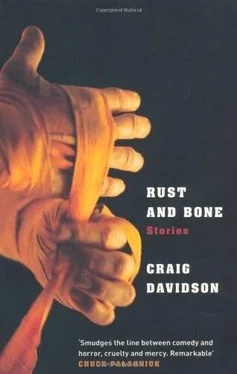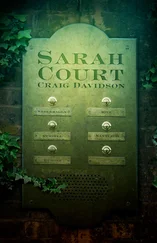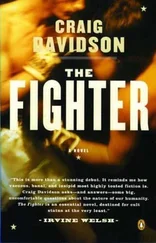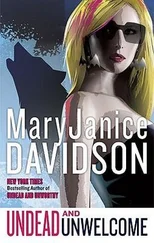The kid comes on, stance switched to southpaw. He jabs once, twice, again, setting up the overhand right. Bua’s still groggy, stepping to his left with the left foot and throwing a left hook over the jab. The kid turns under it and, as he takes the punch above the ear, fires his own right return into the short rib, carrying his weight onto the left foot, ripping another hard right into the same spot.
Bua fires a side-kick into the kid’s thigh, the sound of meat on meat a bullwhip’s crack. The kid staggers but Bua overbalances, too much weight on the back right leg, and the kid recovers to step in low, rising with a powerful right cross.
The boy goes down. He goes down on his butt and the back of his head hits the canvas.
The crowd becomes very still. The ocarina musicians, whose playing had risen to a fever pitch, cease. The boy rises to his knees, gloves pressed to the canvas. Shaking his head violently, shaking the cobwebs off.
“… t’ree … fo’ …”
He reaches for the rope and pulls himself up. Still shaking his head. The kid’s standing in a neutral corner, mugging to the crowd. “It’s all over but the crying, coach,” he says. But it’s not. If he knew anything about anything, he’d know that.
“… si’ … seben …”
The kid can crack; that cross would’ve crumbled most fighters in his weight class. But Bua’s up by the ref’s count of eight. His face is red and glove burned.
The kid charges out of the neutral corner throwing a right-lead haymaker aimed to take the boy’s head off. Bua ducks low and brings a sharp left up into the stomach. The kid caves at the waist and grunts in pain. Swiveling to the outside, Bua vises his arms on either side of his opponent’s head and, thrusting forward, drives first the left knee, then the right, into his gut.
The kid’s tough. But the boy lives tough. The kid fights to remind himself he’s still breathing. The boy thinks about enduring, surviving. They haven’t grown up the same: one has never gone hungry, never watched a man die or fought for his life. All this matters in the ring.
Bua steps back and, as the kid straightens himself, attacks the right leg with three roundhouse kicks. The kid gasps. His knee buckles. Bua feints another roundhouse and, when the kid drops his guard hand, sets both feet and leaps, right arm cocked like a pistol’s hammer, fist smashing into the kid’s face, opening a deep gash over the eyebrow.
Not knowing what to do, the kid bear hugs Bua, tying his arms up. Blood’s pissing out the side of his face and he’s spat the mouthpiece. They butt foreheads and, like magic, the other eyebrow opens up. The kid’s squirting blood all over the damn place.
They break the clinch. The kid must be seeing black from the blood: he’s wiping at both eyes to clear his vision. He’s seeing only the outline of Bua, dark arms and legs. He’s backing away, staring around at nothing. Now he moves forward, but uncertainly, no strength or conviction in his movements. It happens very quickly.
Planting his left foot on the canvas, Bua pivots forward on his heel. His right arm uncurls like a whip as it comes around, arcing up, a textbook spinning backfist that hits the kid on the left temple and he goes down, eyes closing. He hits the canvas open mouthed—I hear his teeth click shut. The referee kneels, counting, the kid’s body lying there, writhing, trying to get up, unwilling to surrender consciousness.
“… ni’ … ten …”
At one minute and thirty-six seconds of the first round the ref signals for the bell.
The boy walks to his corner and sits on a stool. Sucharit removes the mouthpiece and waters him, smoothing an iced metal swell-stop over the mouse on his forehead. The crowd chants his name but he doesn’t acknowledge them. His face shows no emotion. He looks so old.
Helped by two attendants, I get the kid down to the training room. Crack a smelling salt and wave it under his nose. Five seconds later he regains consciousness and sits up on the table. He stares at me with cloudy blue eyes, face sweat-stung and flecked with dried blood. I flush the cuts with hydrogen peroxide, press split meat together and apply butterfly bandages, make him swallow a few vitamin K tablets.
“You came out like a house on fire,” I tell him. “Had him dazed but went for too much too soon.”
I cut the tape and pull the gloves off. The kid looks at his hands, at his legs, hands again, up at the ceiling. As if he has no idea where he is, as if he cannot quite believe he’s here. Quiet in the room, just the kid breathing. His eyes are unfocused and he raises his left hand in front of them, that hand shivering a little.
“You’ll rebound from this,” I say. “Maybe the best thing for you.”
The kid shoots me a look. Feral, that look. Cold . He lowers his hand to his lap. His index finger points at the floor. I look where his finger is pointing, thinking I should call the doctor because nothing’s on the floor, the floor is bare—
I never see the dummy right uppercut that catches me flush on the knockout button. My legs crumple beneath me and blackness pours in.
I COME TO SOMETIME LATER. The kid’s gone. So is my wallet and training kit. Don’t know how long I’ve been out because my watch is missing. Upper lip split to the septum and jaw not working properly. I don’t know what to do. A lot of blood. Pick myself up and walk out to the street.
The city is alien in a way I’ve never known. Small torn-eared dogs fight over knots of gristle flung behind a curry stall. A figure passes whose sex I cannot determine; he or she smells of cocoa and lemongrass and something else and carries a small colored parcel. I lean on the wall of the Royal Jubilee Palace beneath a scrawl of graffiti, a battle cry or revolutionary slogan. Blood soaks the front of my shirt and something is broken on the left side of my face. From an open window of a nearby tenement I hear the last notes of “Let It Be,” by the Beatles. A shoeless boy stares at the old farang shivering in the heat.
The night Starkley died, a writer of no small eminence eulogized: As he took those eighteen punches something happened to everyone within psychic range of the event. Some part of his death reached out to us. One felt it hover in the air. He was still standing in the ropes, trapped as he had been before, he gave some little half-smile of regret, as if he were saying, “I didn’t know I was going to die just yet,” and then, his head leaning back but still erect, his death came to breathe around him . None of this happened, though somehow I wish it had. Nothing reached out. I saw no smile, regretful or otherwise. Starkley’s mouth was slack, mouthpiece hanging halfway out, saliva-stuck to his upper teeth on the left side, eyes rolled back in his skull. I didn’t feel his death breathe around me. He died twelve hours later at Cedars-Sinai of a ruptured blood vessel in his brain. He’d been clear-headed, chatty I’m told, until, complaining of a little headache, he lay down and never got back up. It was an accident. It happens.
But, those last few punches—I knew something very ugly was happening. I was fully aware. I see it all so clearly now. His left arm held out, trembling, Please . My arm swiveling smoothly in its shoulder socket, the pressure of his face against my gloves, the shockwave coursing through the bones of my fingers, wrist, arm—I feel it to this day. And it felt good. Christ, it sickens me to say, but there it is. Good . Where did it come from, that urge? Starkley never did a thing wrong. He was a fair fighter. A professional. In the training room afterwards, Moe said, “Those uppercuts you landed near the end … the Kid couldn’t protect himself.” I said, “I know.” Moe said quietly, “I think you mighta killed him.” I said, “I think so.” The fact Starkley stayed up gave me all the license I needed. Why wouldn’t he just go down? It seemed so strange. Why did he give me the chance? I never wanted that chance.
Читать дальше












